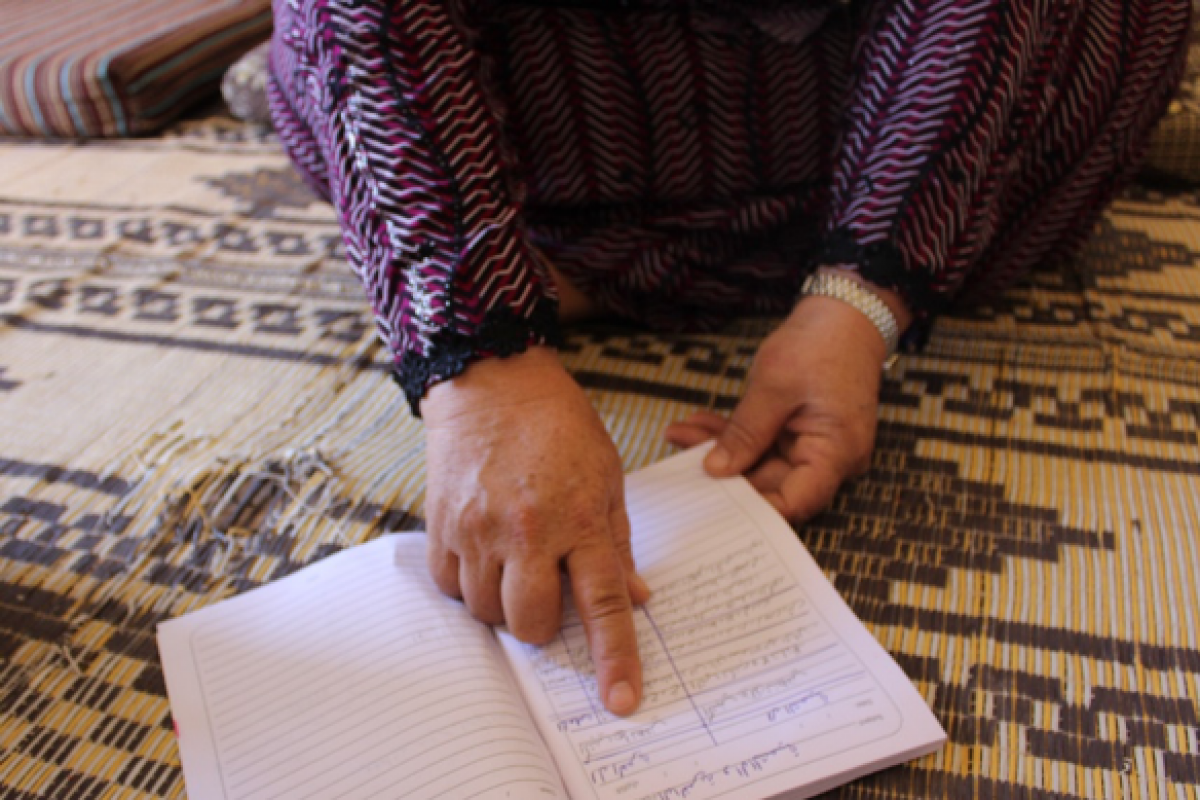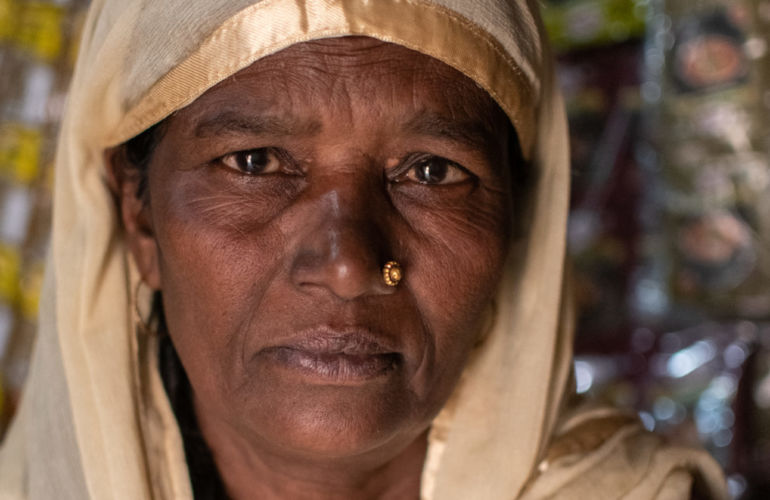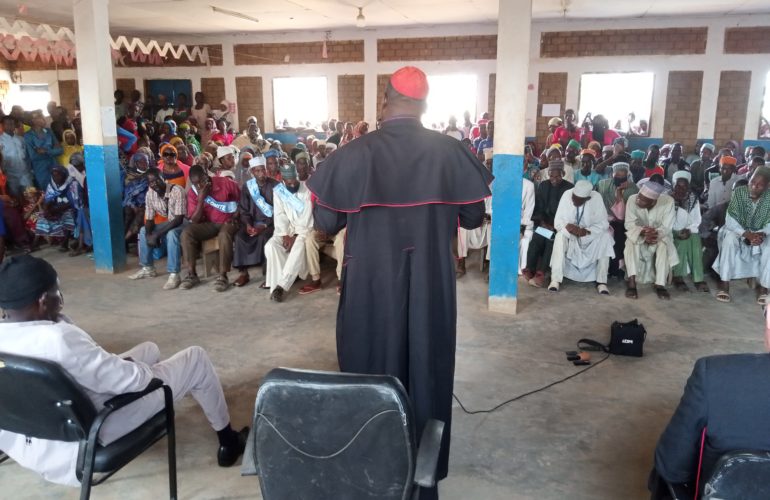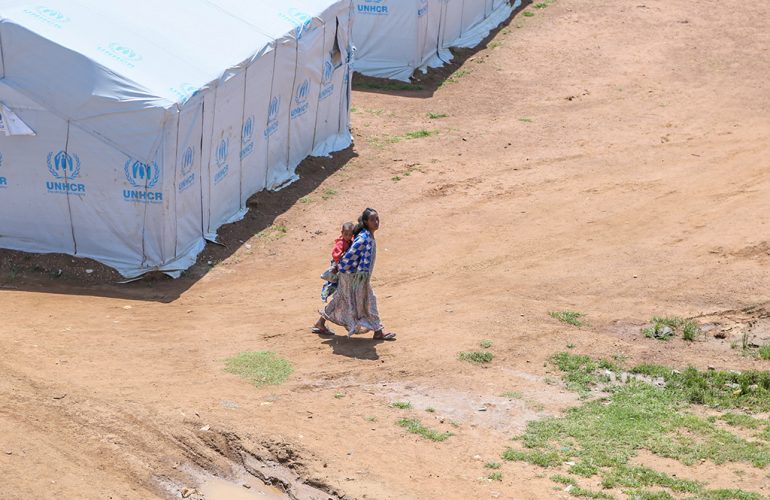Gaining Independence and Confidence Through Literacy

“I felt blind to the world around me,” says Duha, thinking back to her life before she learned to read and write. The mother of three is one of the 376 people who attended ICMC literacy classes in Jordan between September 2018 and June 2019. “They made me feel more independent and confident in my abilities,” she adds. Today, Duha can help her children with their homework and navigate the public transport system alone.
Until 2013, Duha worked alongside her husband, cultivating the fields on the family farm in her 11,000-strong hometown of Maheen, 80 kilometers South of Homs, in Syria. Her labor helped provide for the needs of her three children. However, Duha’s life left her feeling unsatisfied. “It always felt like I was missing something,” she says.
Being the eldest child in her family, Duha did not attend school. She stayed at home, helping her mother bring up her younger siblings, according to the customs of her hometown.
As someone unable to read and write, Duha often felt lost and distant from her family. “I felt blind to the world around me. I could not understand the signs on public transport buses. I felt helpless when handling my children’s prescriptions.” Illiteracy negatively impacted her confidence and self-esteem.
“I was anxious and helpless every time my children asked for my help with their homework. […] It made me feel like an unfit mother.”
In 2013, as a result of the violence that ravaged Maheen, Duha and her family escaped to neighboring Jordan, where they settled in the governorate of Mafraq.
Duha is one of 659,200 Syrian refugees registered with UNHCR in Jordan, and one of over 11 million Syrians who have fled the country since the beginning of the civil war in 2011. Twenty-six percent of ICMC’s adult Syrian beneficiaries in Jordan report that they cannot read or write.
Deeply aware of the challenges that illiteracy brings, Duha was very keen for her children to study. Her 17-year-old son has now left school, but Duha encourages her 13-year-old daughter and her 11-year-old son to continue their studies as long as they can. “As an illiterate, I know the real value of education. That is why I keep on encouraging my children to continue their schooling.”
Unsatisfied with her capacities and determined to progress, Duha always kept an eye open for chances to learn. “Finally, my search led me to ICMC’s literacy classes,” she recalls. She knew that it was only by learning how to read and write that she could become the mother she wanted to be for her children.
ICMC’s literacy program is part of its Protection Center’s activities in Mafraq, which are funded by the U.S. Bureau of Population, Refugees and Migration. The program offers Arabic and English literacy classes, and caters to the needs of both Syrian refugees and Jordanians. They are open to men and women aged 18 or more.
From September 2018 to June 2019, 68 women and 29 men attended the English literacy course, and 208 women and 71 men attended the Arabic literacy course. The Arabic literacy training is divided into two levels, each lasting three months. Duha attended both levels.
Speaking about her experience, Duha said: “I was depressed and spent most of my time in my house before attending the classes. They made me feel more independent and confident in my abilities. Now, I am more open to take part in the activities that come my way.”


